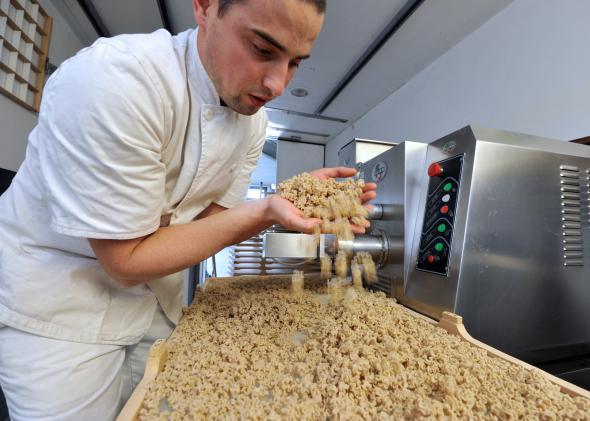On Tuesday, the Oklahoman newspaper published the results of a fruitful open records request. Ryan Aber’s story details the University of Oklahoma’s “self-reported secondary NCAA violations.” Basically, it’s a rundown of the picayune college sports rules that the school’s athletic department broke over a period of 18 months. You should read the whole thing, as there’s no better demonstration of the NCAA’s absurdity—its obsession with policing inconsequential behavior while abetting a system that exploits young athletes.
Many of these violations involve impermissible phone calls and text messages. (There are abstruse limits on how and when coaches are allowed to contact potential recruits.) For example: “Assistant coach Bruce Kittle sent contact information for one recruit to another recruit, who was a junior at the time, when he meant to send it to assistant coach Josh Heupel.” This one’s even better: “Assistant coach Bruce Kittle pocket-dialed a recruit a day after receiving a permissible text message from the recruit.” Get your phone under control, assistant coach Bruce Kittle!
As a result of that butt-dialing incident, the Oklahoma staff “was prohibited from initiating phone calls or correspondence with the recruit involved for four weeks and the recruit was declared ineligible for competition at the school barring NCAA reinstatement (self-imposed).” That “self-imposed” bit at the end means that the school gave this punishment to itself. On account of butt-dialing.
Another highlight is this report about a transgression by the women’s soccer program:
Violation: A recruit, staying in the Embassy Suites on an official visit, ordered Internet service for $9.95. Assistant women’s coach Graeme Abel did not notice the additional expense on the bill.
Resolution: The recruit was ruled ineligible for competition at the school until repayment for the bill is made to the charity of her choice. The coaching staff was provided detailed rules education regarding additional lodging expenses. The form given to recruits on official visits was modified to include mention of additional lodging expenses.
And finally, the pasta incident (emphasis is ours):
Violation: Three current student-athletes received food in excess of NCAA regulation at a graduation banquet. The three had graduated from the school but returned for an additional season of competition. The players were provided pasta in excess of the permissible amount allowed.
Resolution: The three were required to donate $3.83 each (the cost of the pasta serving) to a charity of their choice in order to be reinstated. The department provided rules education to applicable athletics department staff members.
A “charity of their choice”—now that’s leniency.
To learn more about the NCAA’s food policing, read John Infante’s essential guide, “How the NCAA Banned Cream Cheese.” And again, you should read the Oklahoman report in its entirety. Nice job, Ryan Aber.
Update, Feb. 20, 10:50 a.m.: Meghan Durham, assistant director of public and media relations for the NCAA, says the Oklahoma players did not in fact violate a pasta portion rule. “While we appreciate Oklahoma’s commitment, there are no NCAA rules regarding portion sizes, and any penalties were determined by the university,” Durham says.
The Oklahoman’s Aber clarifies that the school likely believed there had been a violation of NCAA bylaw 16.11.1.10:
16.11.1.10 Incidental Benefits—Reasonable Refreshments. An institution may provide student-athletes with reasonable refreshments (e.g., soft drinks, snacks) for student-athlete educational and business meetings and, on an occasional basis, for celebratory events (e.g., birthdays). [R] (Adopted: 10/28/99)
Aber writes, “So it appears the pasta serving size wasn’t the problem but the fact the pasta was part of a full meal and not light refreshments was the issue.” Keep that in mind, university athletic departments.
And for what it’s worth, two Oklahoma athletes have come forward to say they donated $5 each to charity on account of their pasta eating, not the $3.83 spelled out in the school’s report.
